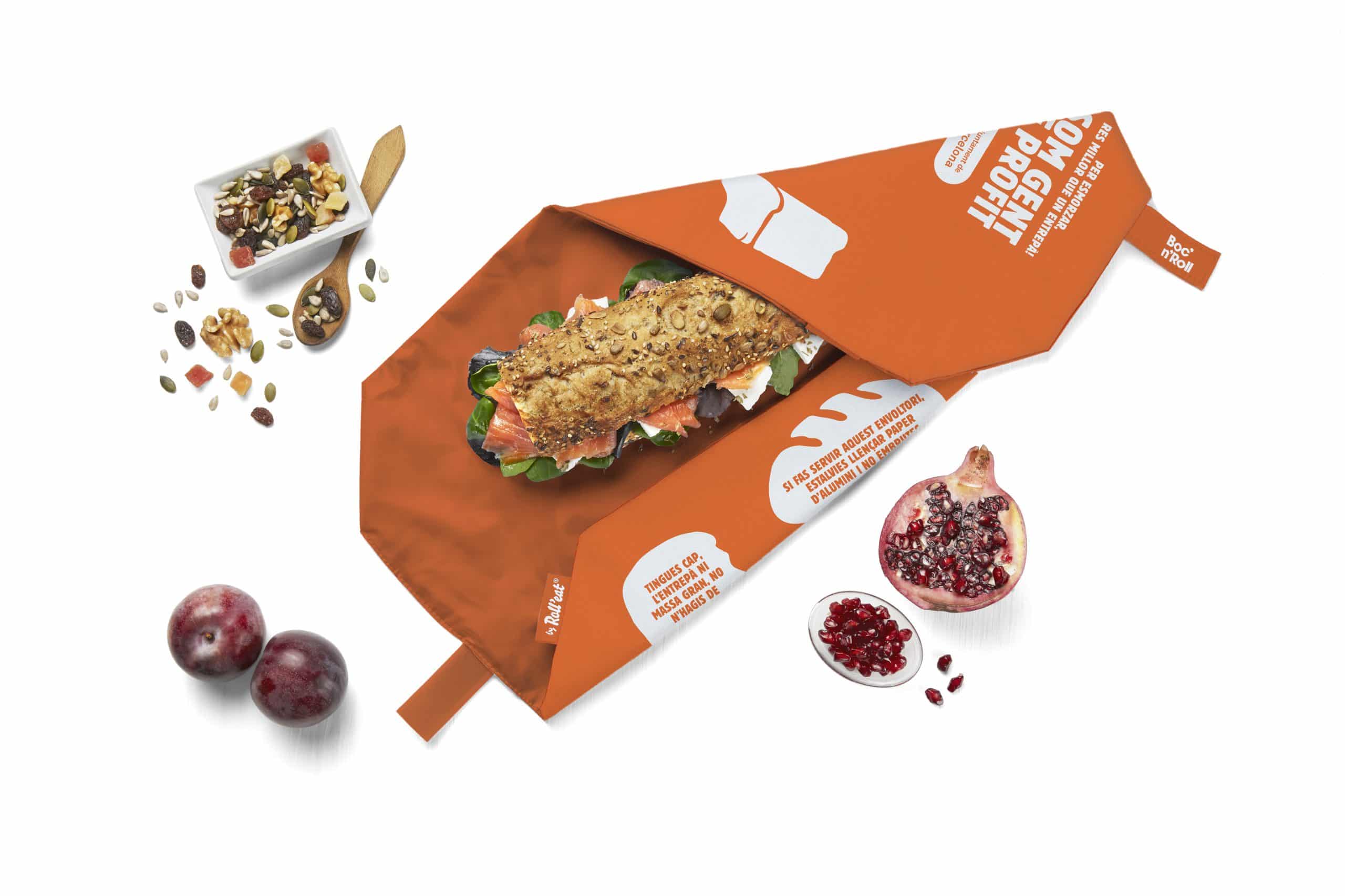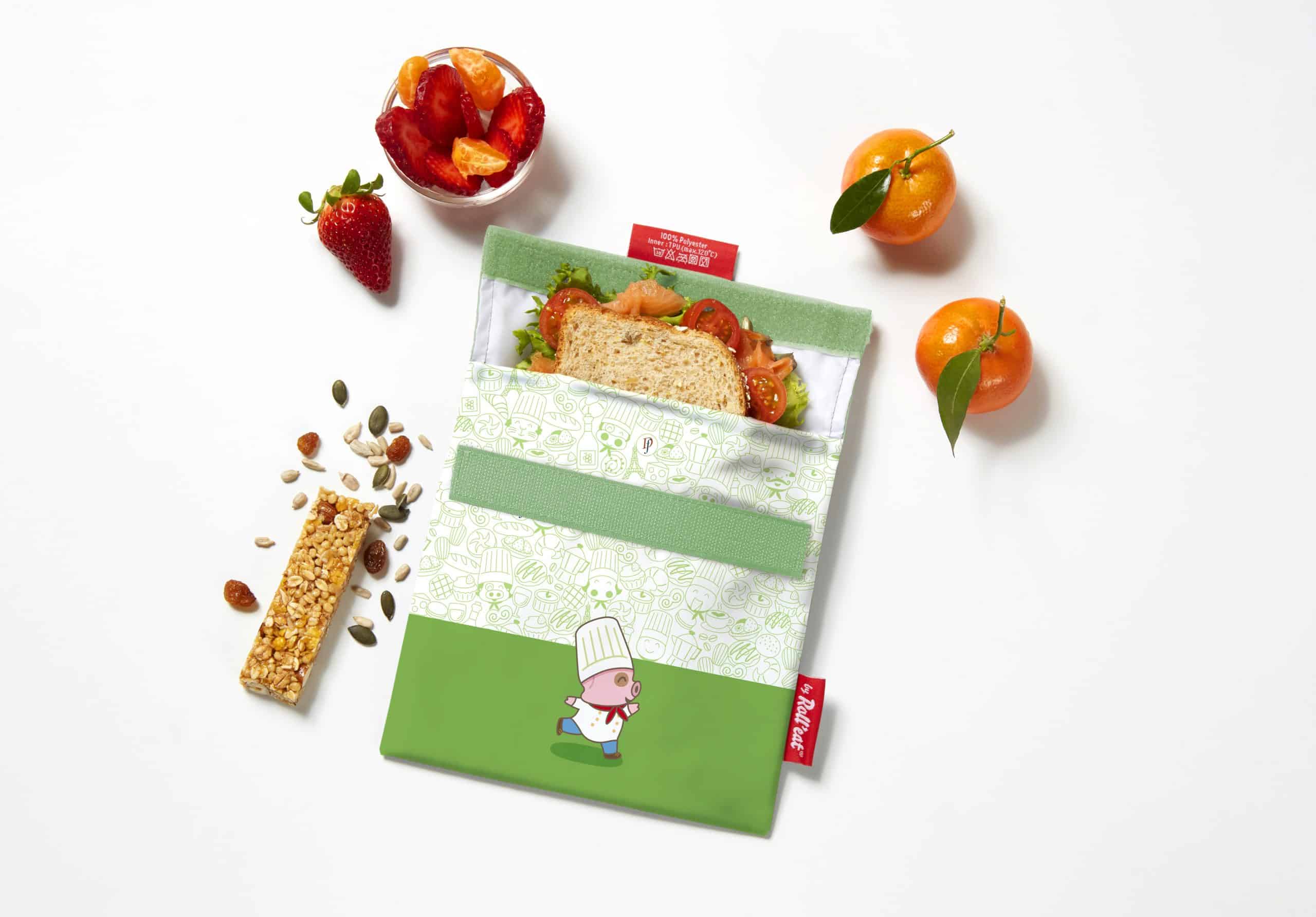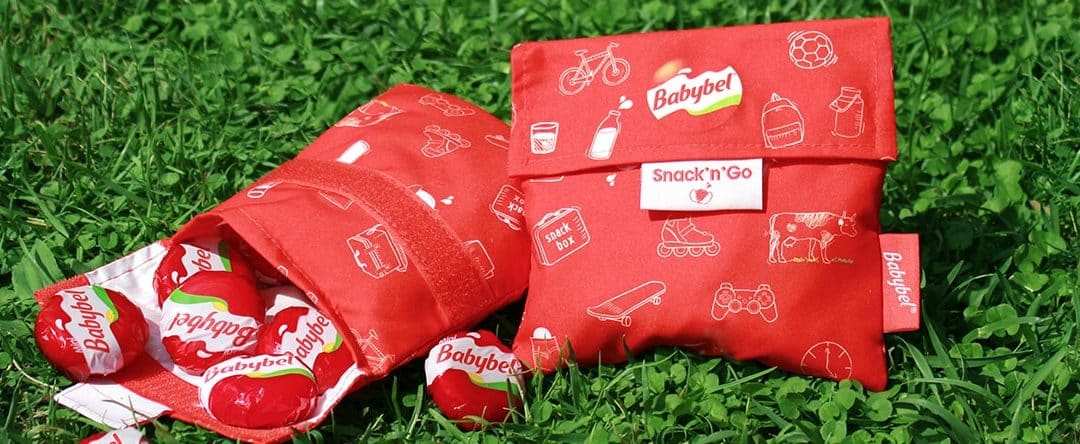At Roll’eat, we’ve spent years developing reusable solutions to reduce the use of disposable wrappers like aluminum foil. And this isn’t a random decision, its environmental impact is far more serious than it seems.
What is the true ecological cost of aluminum foil?
Although often overlooked, aluminum foil is one of the most environmentally problematic materials. While its use is gradually decreasing, it still remains one of the most popular everyday products. Its production requires large amounts of energy and relies on bauxite extraction, an activity that leads to deforestation, soil contamination, and biodiversity loss.
In terms of emissions, the impact is equally concerning. One person using aluminum foil daily to wrap a sandwich can consume up to 1,080 meters over six years. This consumption equates to a carbon footprint similar to driving from Barcelona to Milan, approximately 924 kilometers. Now, if we extrapolate this data to the entire population that regularly uses it, the environmental impact becomes clearly unsustainable.

Public institutions committed to sustainability
Fortunately, many organizations are becoming more aware and are embracing more sustainable solutions. At Roll’eat, we offer a practical and eco-friendly alternative: reusable food wraps like Boc’n’Roll, Snack’n’Go, and Eat’n’Out, designed to adapt to everyday situations. These products not only prevent the production of tons of waste, but also educate and inspire more efficient consumption habits.
That is why public institutions such as the Barcelona City Council distribute personalized Boc’n’Rolls each year to students in schools participating in their educational project. The goal is to reduce the use of aluminum foil and other single-use packaging, while introducing sustainable habits to younger generations who will play a decisive role in the future of our planet. Students record their results in reports that highlight waste reduction throughout the academic year, and these findings are later shared with other participating schools in an annual event.
The Government of the Canton of Fribourg in Switzerland also included these products in their child health campaign “Je mange bien, Je bouge bien” (I eat well, I move well), promoting a combination of healthy habits and sustainability. These initiatives demonstrate how easy it can be to integrate environmental education into school life.

Non-profits driving change
Non-profit organizations have also found in our products a powerful tool for raising awareness. In Belgium, GoodPlanet used the distribution of Boc’n’Roll to conduct educational workshops in schools. On a national level, Rezero has launched waste reduction campaigns using custom designs.
Purpose-driven companies: sustainability as a brand value
Busy work schedules or mid-morning snacks often lead to the use of single-use packaging. That is why many companies are also joining the movement to reduce their impact. Brands like Groupe Bel (known for products like Babybel) have gifted customized Boc’n’Rolls in loyalty campaigns—aligning their promotional efforts with an eco-conscious message and reinforcing sustainability as a core brand value.
In Asia, Delifrance Hong Kong rewarded loyal customers with reusable food wraps and even promoted their use through in-store promotions. Following their example, other companies such as PHB, ASAP Belgium, MTR Hong Kong, and Yongo AG Insurance have chosen our products as sustainable gifts for employees and clients, reinforcing their commitment to the environment and positioning themselves as planet-friendly businesses.

Sustainability starts with small actions
All of this proves that small changes in daily habits can have a big impact. Replacing aluminum foil with a reusable solution means reducing waste, cutting emissions, protecting natural resources and, most importantly, fostering a culture of conscious consumption in the next generations, who will play a key role in preserving the environment.
At Roll’eat, we will continue working to make this change easier. Because every small individual action can contribute to a big global transformation.

